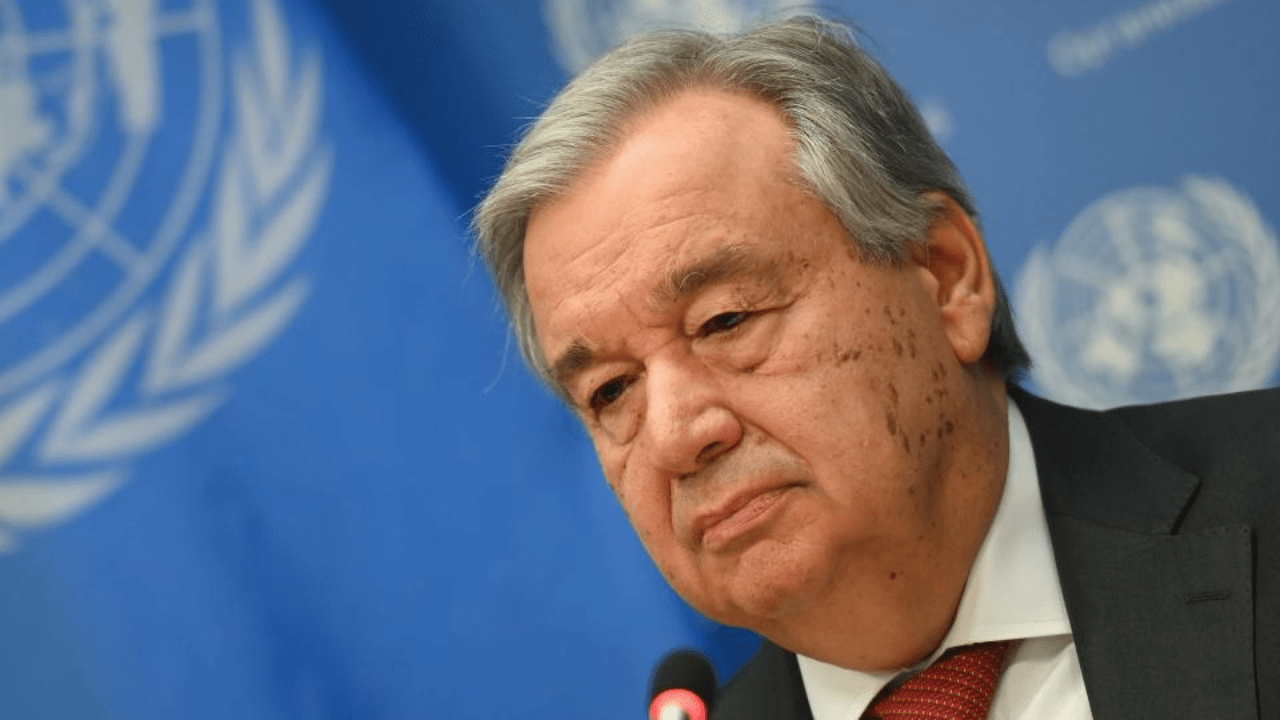
UN Chief Calls For Urgent Global Vaccination Plan to Reverse Unfair Vaccine Access
UN Secretary-General Antonio Guterres sharply criticized the “wildly uneven and unfair” distribution of COVID-19 vaccines on Wednesday, saying 10 countries have administered 75 per cent of all vaccinations and demanding a global effort to get all people in every nation vaccinated as soon as possible.
The UN chief told a high-level meeting of the UN Security Council that 130 countries have not received a single dose of vaccine and declared that “at this critical moment, vaccine equity is the biggest moral test before the global community.”
Guterres called for an urgent Global Vaccination Plan to bring together those with the power to ensure equitable vaccine distribution scientists, vaccine producers and those who can fund the effort.
And he called on the world’s major economic powers in the Group of 20 to establish an emergency task force to establish a plan and coordinate its implementation and financing. He said the task force should have the capacity “to mobilize the pharmaceutical companies and key industry and logistics actors.”
Guterres said Friday’s meeting of the Group of Seven major industrialized nations — the United States, Germany, Japan, Britain, France, Canada and Italy — “can create the momentum to mobilize the necessary financial resources.”
Thirteen ministers addressed the virtual council meeting organized by Britain on improving access to COVID-19 vaccinations, including in conflict areas.
The coronavirus has infected more than 109 million people and killed at least 2.4 million of them. As manufacturers struggle to ramp up production of vaccines, many countries complain of being left out and even rich nations are facing shortages and domestic complaints.
The World Health Organization’s COVAX program, an ambitious project to buy and deliver coronavirus vaccines for the world’s poorest people, has already missed its own goal of beginning coronavirus vaccinations in poor countries at the same time that shots were rolled out in rich countries. WHO says COVAX needs $5 billion in 2021.
US Secretary of State Antony Blinken told the council the Biden administration “will work with our partners across the globe to expand manufacturing and distribution capacity and to increase access, including to marginalized populations.”
President Joe Biden has rejoined the WHO and Blinken announced that by the end of February the United States will pay over $200 million in previously assessed and current obligations to the UN agency, which Washington will seek to reform.
America’s top diplomat said the US also plans to provide “significant financial support” to COVAX through the GAVI vaccine alliance, and will work to strengthen other multilateral initiatives involved in the global COVID-19 response. He gave no details.
China’s Foreign Minister Wang Yi criticized the growing “immunity divide” and called on the world to “come together to reject `vaccine nationalism,’ promote fair and equitable distribution of vaccines, and, in particular, make them accessible and affordable for developing countries, including those in conflict.”
At WHO’s request, he said, China will contribute 10 million doses of vaccines to COVAX “preliminarily.”
China has donated vaccines to 53 developing countries including Somalia, Iraq, South Sudan and Palestine, which is a UN observer state. It has also exported vaccines to 22 countries, he said, adding that Beijing has launched research and development cooperation on COVID-19 with more than 10 countries.
India’s External Affairs Minister Subrahmanyam Jaishankar also called for a halt to “vaccine nationalism” and encouragement for internationalism. “Hoarding superfluous doses will defeat our efforts towards attaining collective health security,” he warned.

